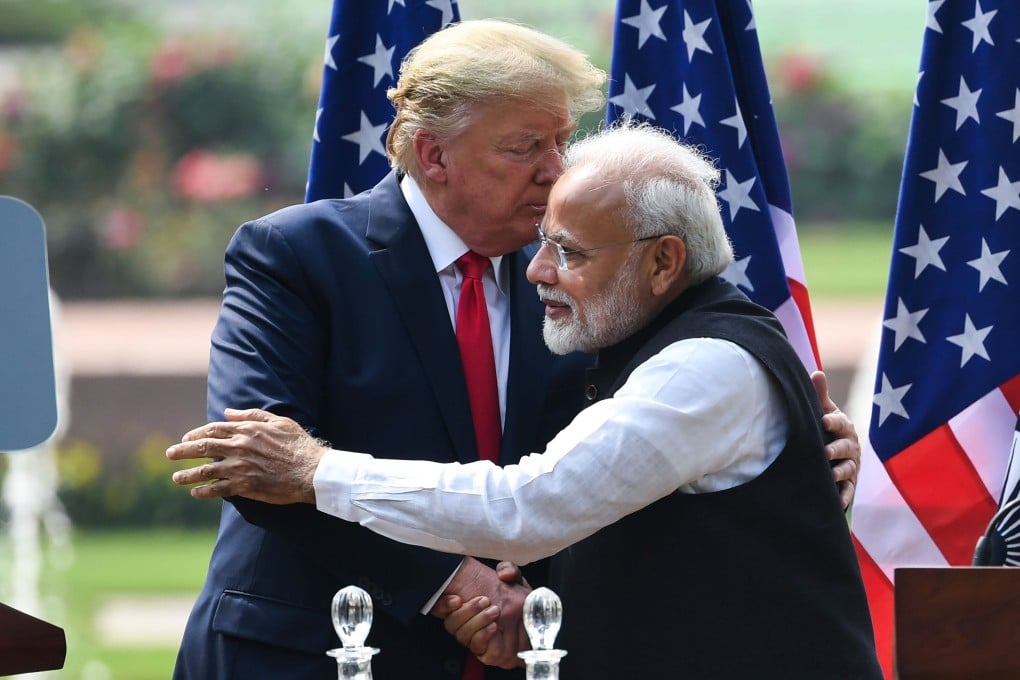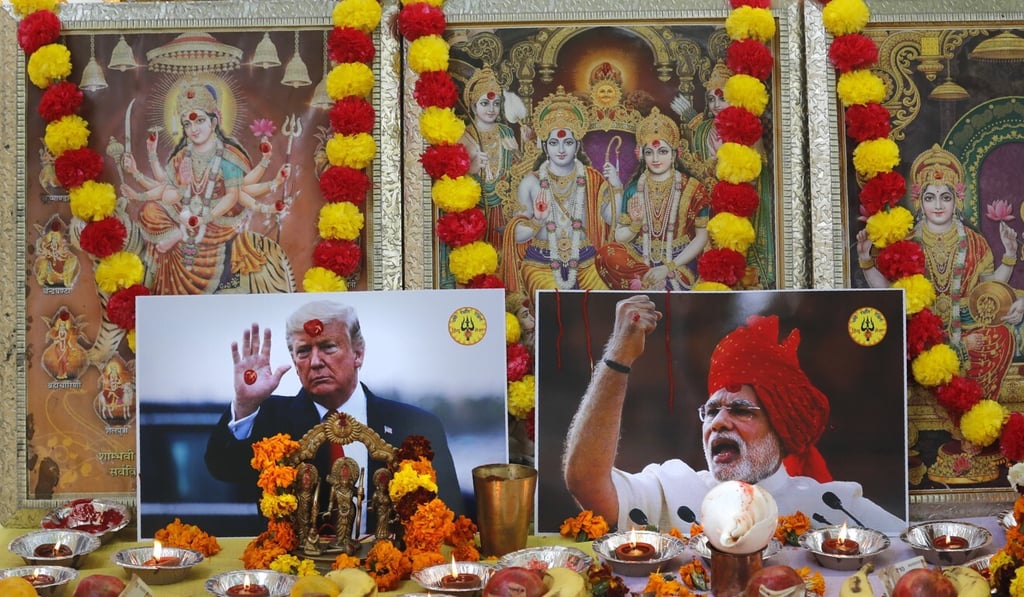Will Modi-Trump bromance come back to bite India under Biden’s presidency?
- The love-in between the Indian leader and his American counterpart went deeper than diplomats advise, with the BJP backing Trump’s re-election bid
- Shared concerns over China are likely to endure, say analysts, though the US may turn up the heat on human rights

The incomplete clip was from a political rally that Modi and Trump addressed in Houston in September 2019 when Modi showered praise on the US president, saying that Trump had achieved “so much for the world”, that he appreciated Trump’s “resolve to Make America Great again”, and that the US president was “warm, accessible and full of wit”.
Many saw Modi’s words in front of 50,000 Indian-Americans as a virtual endorsement of Trump, going into election year. In New Delhi, insiders said this was because the Modi administration was convinced Trump was set for re-election.
With Biden’s victory, some fear Modi’s backing of Trump might come back to bite the Indian establishment.

A former Indian ambassador said the Modi government might have “compromised” a cardinal rule of diplomacy.